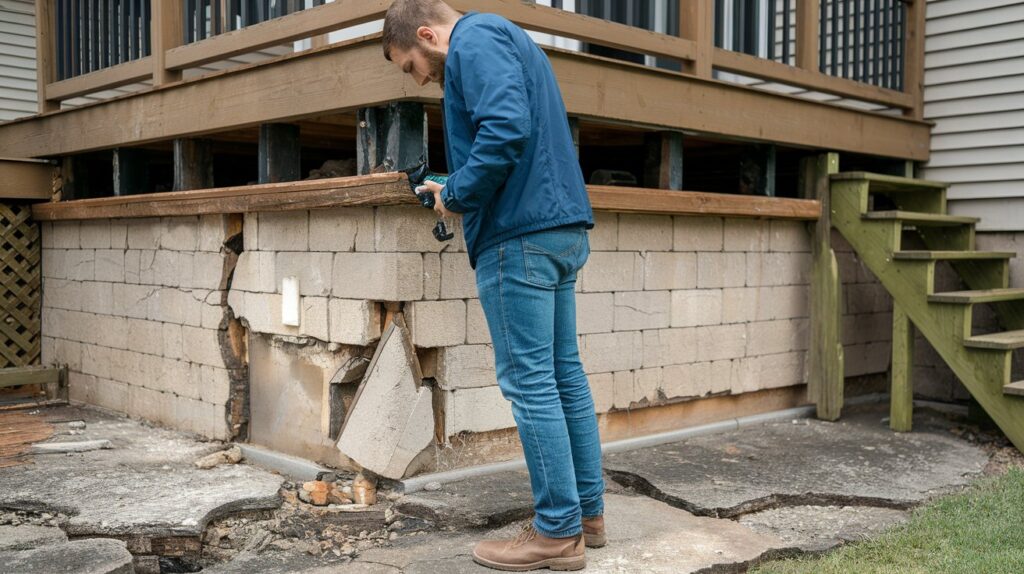Home inspections can make or break real estate deals, and foundation problems are absolutely the kind of discoveries that send buyers running for the hills and make sellers break out in cold sweats. Nobody wants to deal with foundation drama when there’s already so much stress involved in buying or selling a house.
Buyers desperately want reassurance they’re not walking into a money pit that’ll drain their savings with expensive structural repairs. Sellers need to avoid last-minute surprises that could torpedo their deal or force them into panic mode trying to figure out what went wrong and how much it’ll cost to fix.
Foundation concerns don’t just influence the final price, they can completely derail negotiations or kill deals entirely when problems seem too big or expensive to handle. That’s where specialists like Carolina Foundation Solutions step in to help both buyers and sellers navigate these tricky situations successfully.
Knowing what inspectors look for, how foundation issues affect each party differently, available repair options, and why timing matters helps everyone make smart decisions and keep deals on track.
Common Foundation Issues Found During Inspections
Wall, floor, and ceiling cracks are among the first things inspectors document because they’re visible signs that something’s happening with the foundation underneath. These cracks range from hairline cosmetic issues to serious structural problems that require immediate professional attention and expensive repairs.
Uneven or sagging floors get flagged immediately because they indicate foundation settlement that’s affecting the home’s structural integrity. Inspectors use levels and visual assessments to identify areas where floors slope noticeably or feel bouncy when walked on, signaling potential support problems.
Moisture or water damage in basements raises huge red flags about foundation integrity and waterproofing failures that can lead to mold, structural deterioration, and ongoing maintenance headaches. Inspectors look for active leaks, water stains, musty odors, and signs of previous flooding or moisture problems.
What Buyers Should Watch For
Understanding crack severity makes a huge difference in knowing whether you’re looking at minor maintenance or major structural issues that could cost tens of thousands to repair properly. Hairline cracks might be cosmetic, but wide horizontal cracks often indicate serious foundation failure.
Foundation issues affect long-term ownership costs through ongoing repairs, higher insurance premiums, and reduced resale value that impacts your investment’s future performance. Smart buyers factor these potential expenses into their overall financial planning rather than just focusing on purchase price.
Knowing when to negotiate repairs versus walking away completely depends on the severity of problems and your tolerance for dealing with structural issues. Sometimes it’s better to find a different house than inherit someone else’s foundation nightmare that could drag on for years.
What Sellers Need to Know
Pre-inspections help avoid surprises by identifying foundation issues before buyers discover them, giving you time to address problems or price accordingly. This proactive approach prevents deals from falling apart at the last minute when unexpected foundation problems surface during buyer inspections.
Foundation issues can absolutely tank property values by scaring away qualified buyers and forcing you to accept lowball offers from investors willing to take on structural problems. Even minor foundation concerns can reduce your home’s marketability and final selling price significantly.
Full disclosure about known foundation issues builds trust with buyers and prevents legal problems later if undisclosed issues surface after closing. Transparency about problems and any repairs you’ve made demonstrates good faith and can actually help deals move forward more smoothly.
Repair and Negotiation Options
Sellers can offer repair credits that let buyers handle foundation work themselves, or complete repairs before closing to eliminate buyer concerns entirely. Each approach has advantages depending on the severity of problems, timing constraints, and what buyers prefer for peace of mind.
Buyers use professional foundation reports to negotiate pricing based on actual repair costs rather than guessing about potential expenses. Detailed contractor estimates provide concrete numbers that support reasonable repair credit requests or price reductions during negotiations.
Professional contractors play crucial roles in providing accurate assessments and realistic repair estimates that help both parties understand what they’re dealing with. Quality estimates prevent surprises and give everyone confidence that problems are properly understood and priced.
The Importance of Professional Expertise
Home inspectors can flag potential foundation issues but aren’t specialized repair contractors who can determine exact causes or provide detailed solutions. Their job is identifying problems that need further evaluation, not diagnosing root causes or recommending specific repairs.
Foundation specialists provide accurate assessments that go beyond general inspection findings to determine what’s actually causing problems and what repairs are necessary. This expert analysis gives both buyers and sellers concrete information for making informed decisions about how to proceed.
Professional involvement gives everyone peace of mind by ensuring foundation issues are properly evaluated and addressed by qualified experts. When real foundation specialists are involved, both parties can feel confident that problems are understood and solutions are appropriate for the specific situation.
Conclusion
Foundation issues pop up regularly during home inspections and can seriously influence buying and selling decisions in ways that affect everyone’s financial interests. These aren’t problems you can ignore or hope will go away, they require informed responses from both parties.
Being proactive and well-informed benefits buyers and sellers by preventing surprises, enabling better negotiations, and keeping deals on track when foundation concerns arise. Knowledge and professional guidance make all the difference in handling these situations successfully rather than letting them derail transactions.
With proper expert evaluation and appropriate repairs, real estate transactions can move forward smoothly while protecting everyone’s investment and ensuring the home’s structural integrity for future owners. Foundation issues don’t have to kill deals when handled professionally.

